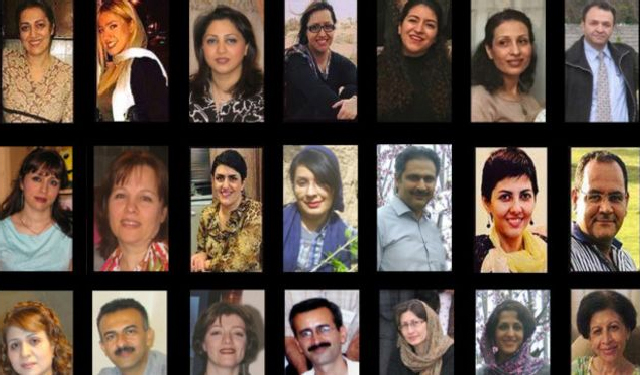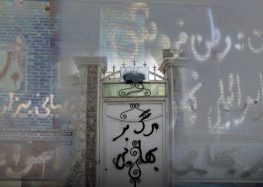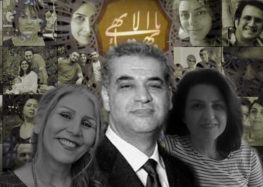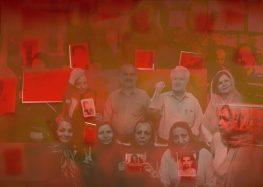Two Dozen Iranian Baha’is Sentenced to Six to Eleven Years for Practicing Their Faith

Courtesy of BBC Persian
Twenty-four Baha’is from northeastern Iran have been handed down sentences that range from six to eleven years “simply for being Baha’is,” according to Simin Fahandej, the faith’s spokesperson at the United Nations in New York.
The Baha’i community is one of the most severely persecuted religious minorities in Iran. The faith is not recognized in the Islamic Republic’s constitution and its members face severe discrimination in all walks of life and prosecution for the public display of their faith.
“We don’t know if they were put on trial together or individually, but based on the written verdict we received on January 27, they have each received prison sentences ranging from six to 11 years in prison,” Fahandej told the International Campaign for Human Rights in Iran.
They were charged with “propaganda in favor of the Baha’i faith and against the Islamic Republic by being members of an illegal organization,” added Fahandej, “implementing [proselytizing] projects in Golestan Province” and “collaborating with enemy states by actively promoting sectarian, anti-Islamic and anti-Shia objectives.”
“You really cannot accuse people of propaganda and hand down long prison terms just because a few Baha’i and non-Baha’i families gathered together to talk about religion,” said Fahandej .
Iranian officials have repeatedly denied prosecuting Baha’is for their religious beliefs but have routinely accused members of the religious minority of crimes against national security, including espionage, on thin or non-existent evidence.
The most recent mass sentencing appears to represent a rare occasion where a judge has penned a verdict directly tying the individuals’ religious beliefs to his verdicts.
The 24 Baha’is were arrested in the cities of Gorgan, Gonbad, and Minoodasht in northern Golestan Province.
Shahnam Jazbani and Sheyda Ghoddoosi were each sentenced to 11 years in prison; Farah Tabianian, Pouneh Sanaei, Mona Amri Hessari, Behnam Hassani, Parisa Shahidi, Mojdeh Zohoori, Parivash Shojaie, Tina Mohebati, Hana Aghighian, Shohreh Samimi, Bita Hedayati, Vosagh Sanaie, and Hana Kooshk Baghi each received nine-year prison terms.
Roufia Pakzadan, Soudabeh Mahdinejad, Mitra Nouri, Shiva Rouhani, Hooshmand Dehghan, Maryam Dehghan, Nazy Tahghighi, Camelia Bideli, and Navid Moalem were each sentenced to six years in prison.
The verdicts were issued by Judge Mohsen Ghanbari of Branch 2 of the Revolutionary Court in Gorgan, the capital of Golestan province, Fahandej told the Campaign.
“The judge’s words show that these individuals were arrested and given such long prison sentences just because of their belief in the Baha’i religion,” she said.
More than 80 Baha’is are currently held in Iranian prisons, according to Fahandej. The UN Special Rapporteur for human rights in Iran, Dr. Ahmed Shaheed, has cited the persecution of Baha’is in Iran in his annual reports.
“Unfortunately, since Mr. Rouhani came to power some two years ago, many Baha’is have been arrested, many Baha’i cemeteries have been destroyed and Baha’i youths with top grades have been denied entry into the universities only because of their faith,” she said.
“And now 24 Baha’is have been given long prison sentences. This begs the question, who are the criminals here? The Baha’is or officials who send Baha’is to prison?”





